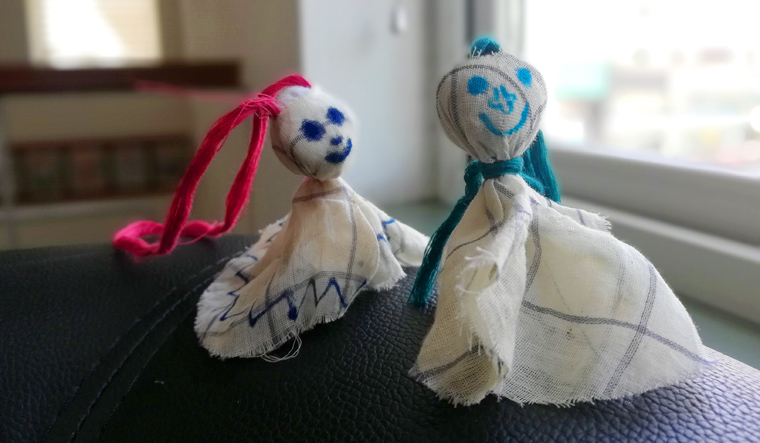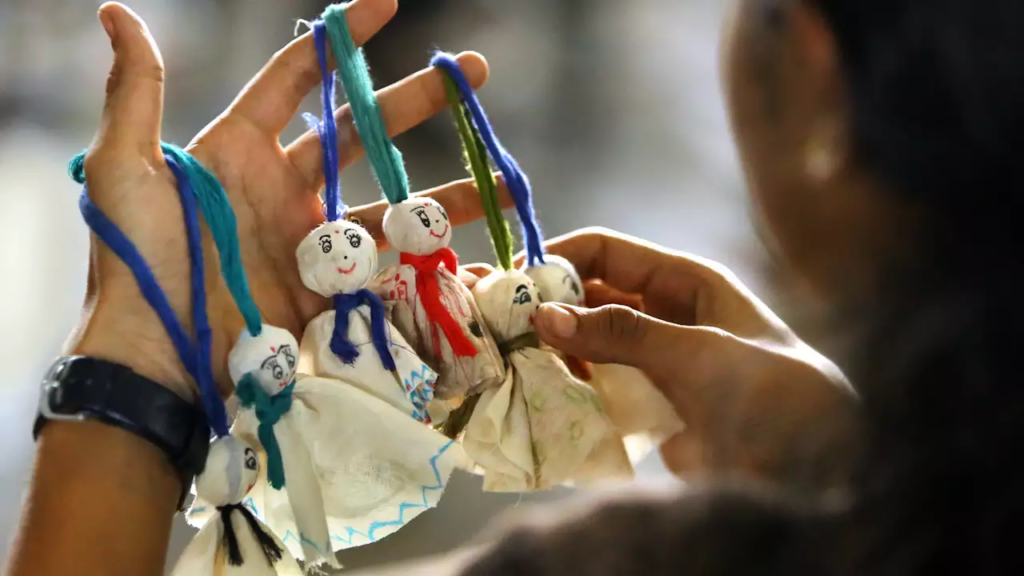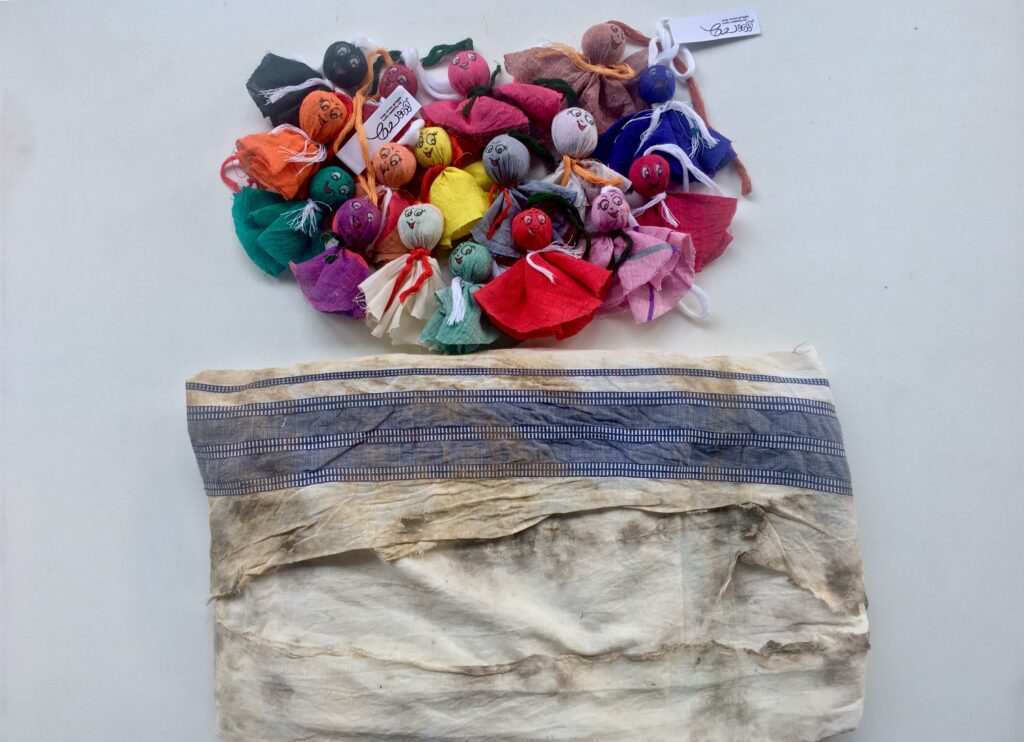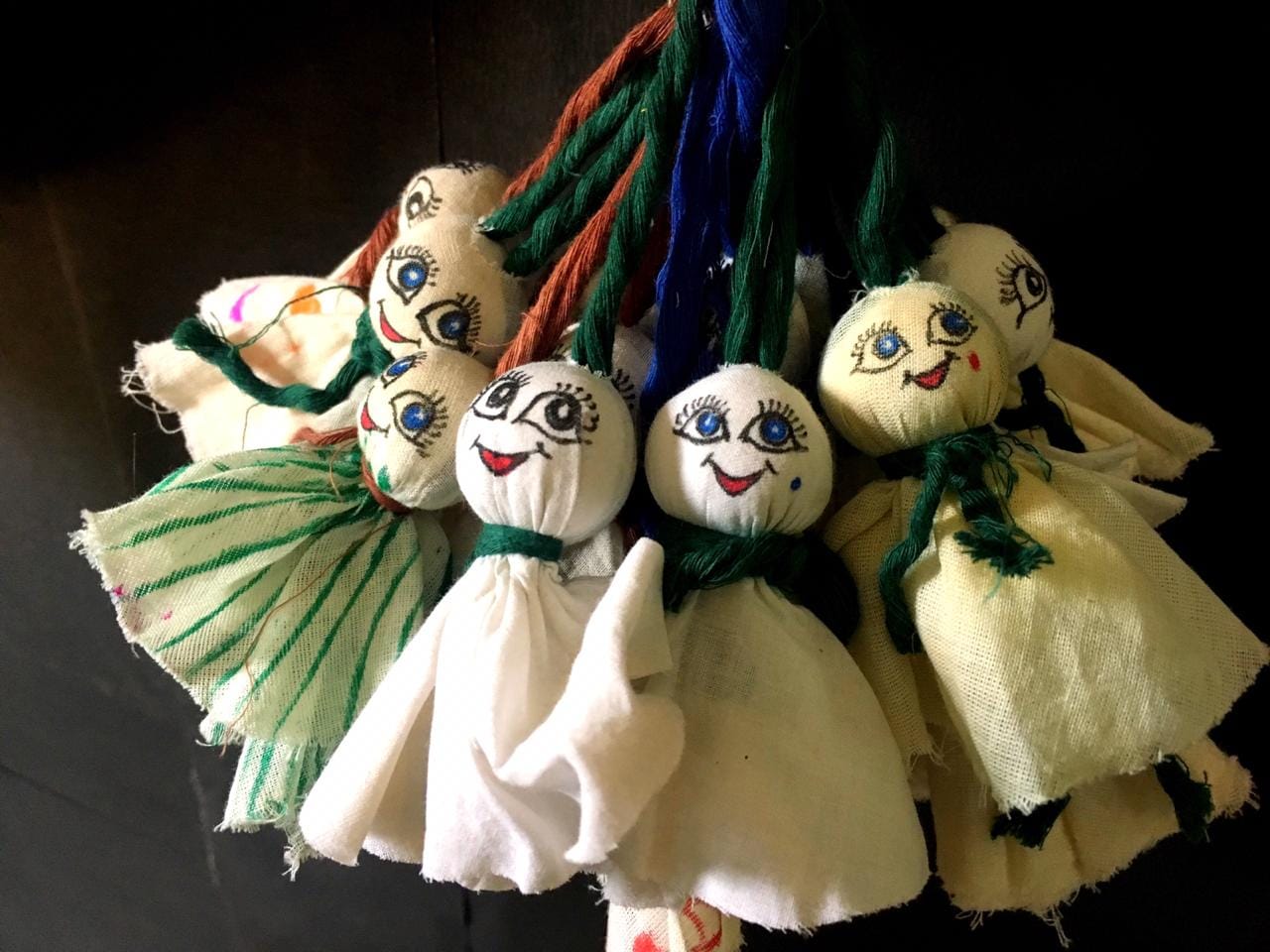In the aftermath of the destructive floods that hit Kerala, India, in August, the city of Chendamangalam, a hub for handloom weaving, faced unprecedented challenges. The weavers, already affected by the encroachment of power-loom, saw their livelihoods further devastated by the floods, wiping out almost all finished products and sarees. A glimmer of hope emerged when Ms. Lakshmi Menon, the visionary founder of Pure Living, and Mr. Gopinath Parayil devised a unique solution.
Lakshmi Menon, known for her commitment to upcycling waste materials, spearheaded an initiative where flood-damaged clothes were salvaged. These materials were meticulously washed and chlorinated, transformed into small dolls known as Chekutty, meaning the child of Chendamangalam. This innovative project not only gave a new lease of life to discarded clothing but also provided a means to support the weavers in rebuilding their community.



Chekutty swiftly became the mascot of Kerala, symbolizing the resilience of its people in the face of adversity. The dolls, reflecting the struggles of the community, garnered widespread attention and support. Their impact transcended borders, reaching the United States, where schools enthusiastically embraced the idea of making these dolls.
Ms. Menon’s collaboration with Malayalis in the US, particularly senior management personnel at Google headquarters in Mountain View, California, further propelled the Chekutty initiative. Together, they developed a Chekutty app, extending the reach and impact of this unique project. The dolls, initially conceived as a response to a local catastrophe, had now become a global phenomenon.
Media Links:
timesofindia.indiatimes.com
thenewsminute.com
indianexpress.com
www.scroll.in

